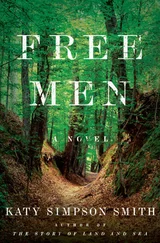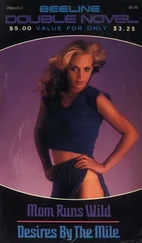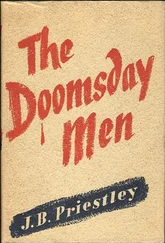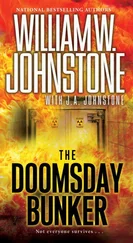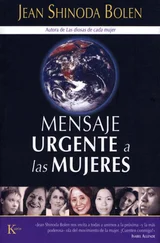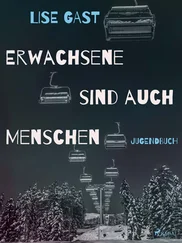‘Perhaps chemistry is the final weapon, the superior weapon, which will give the people who use it properly – who master it! – world wide supremacy. Perhaps even the Empire of the World!’ 11These are not Haber’s words, but those of a fictional scientist, Professor Hoffman, in André Malraux’s haunting study of warfare, The Walnut Trees of Altenburg , written during World War II. Hoffman is an unmistakable portrait of Haber. Malraux’s novel is based on an eyewitness account of a real gas attack that took place on 12 June 1915, the day that Fritz Haber was writing to his friend about his memory of Clara. 12
After leaving Berlin and his traumatized son, Haber travelled east to the Carpathian front. However, he soon realized that the terrain there was unsuited to an attack using poison gas, and proceeded to the sector of the front line nearly forty miles west of Warsaw, near Bolimó w on the River Bzura. This is where the gas attack in Malraux’s novel takes place. In reality the first attack was a failure, causing fifty-six casualties among the German troops. In Malraux’s novel, as the professor arrives at the front to supervise the second attack he is ‘beaming with joy’ at the favourable conditions: ‘The wind’s still perfect, still perfect!’ 13
On the evening of the attack, Professor Hoffman praises chemistry as the ‘superior weapon’. The other German officers are not convinced, and the professor seizes the opportunity to enthuse about poison gas, reciting a litany of noxious war gases and their effects. Chlorine: ‘easy to liquefy, disastrous to the human organism, very cheap, mind you!’ Phosgene: ‘ten times as strong as chlorine’. Mustard gas: ‘the best fighting gas of all’. 14
Malraux’s German narrator, Vincent Berger, says that Hoffman has ‘the infectious power of those extreme neurotics who impose the atmosphere of their own genius or madness’. 15Like Griffin, H. G. Wells’s mad scientist in The Invisible Man , Professor Hoffman has become addicted to the drug of his own scientific power. The professor tries to sway the sceptical officers with an argument that became familiar in the interwar years: poison gas is ‘the most humane method of warfare’, he argues. 16Fritz Haber himself infamously claimed that chemical warfare was ‘a higher form of killing’. 17But despite the Professor’s coldly rational arguments, a question from one of the German officers is left hanging unanswered in the air: ‘why are we despised?’ 18

An aerial view of a German gas attack on the Eastern Front in World War I.
The next morning, Berger and the other soldiers watch the cloud of gas as it drifts silently across the River Bzura and over the Russian trenches:
A long cloud of dust was floating in the sunshine. Not feathering out like the dust in the wake of a car, but uniformly thick and tall, like a wall… The sheet of gas went on growing, swamping the parallel trunks of the apple-trees to the same height, then their branches. Soon the bottom of the valley was only a yellow fog… 19
This scientific fog has the ‘look of a war machine’ as it rolls towards the Russian lines. A riderless horse charges wildly at the yellow cloud and is ‘swallowed up in the vast silence’. 20Then the order comes to advance. What the German soldiers discover is unlike any wartime experience they have had. The Professor has described the human effects of the noxious mix of phosgene and chlorine: ‘The opaque cornea first goes blue, the breath starts to come in hisses, the pupil – it’s really very odd! – goes almost black.’ 21But this clinical description falls far short of the full horror of the actual gas attack.
The chemical superweapon leaves in its wake a scene worthy of Dante’s Inferno . It is a scientific apocalypse, a hell created by humankind, revealing (as Malraux puts it) that the depths of the earth ‘teemed with monsters and buried gods’. 22The Russian trenches now lie in a ‘valley of death’ 23where everything – from the plants to the birds and the bees – appears to be dead and already rotting:
The path began to slant more steeply… In the middle of it a man was leaping on all fours, with such spasmodic jerks that it seemed he was being bounced along. Naked. Two yards off, the apparition lifted its grey face and whiteless eyes, opened its epileptic mouth as though to scream…Mad with pain, moving like any madman, as though its body was now only possessed by torment, with a few frog-like leaps it plunged into the putrescence.
Then, in the prehistoric silence, there was a scream, a scream of utter agony which ended up in a mew…
Above the path there were some Russian greatcoats scattered all over the place, shirts hanging, as though carbonized, on the fantastic branches; but not a sign of an explosion. And close by, in a tiny clearing concealed behind a row of sunflowers, some thirty men lay crumbling in a T-shaped trench: an enemy advanced post.
All dead, more or less naked, scattered across a pile of tattered clothes, clutching each other in convulsive groups… Feet were sticking out of this petrified swarm of dead bodies, big toes curled like fists. 24
But what particularly appals Berger, more than their ‘lead-coloured eyes, more than those hands twisting in the empty air’, is ‘the absence of any wound. The absence of blood.’ 25Death had come without warning and without mercy, a silent, creeping chemical killer.
Malraux’s novel gives voice to the widespread feeling after World War I that humankind had stepped beyond the pale in developing such scientifically efficient weapons of mass destruction. Poison gas seemed to be an expression of our darkest and most deadly desires. ‘The Spirit of Evil was stronger here than death’, says Berger. 26He feels that a ‘human apocalypse… had just seized him by the throat’. 27
When they see the human effect of the new weapon, the German soldiers throw down their guns and carry to the ambulances those among their former enemies who are not yet dead, seeking through individual acts of kindness to overcome the ‘inhumanity’ of what had been done that day. The military advance becomes what Malraux memorably describes as an ‘assault of pity’. 28But tragically, compassion comes at a price: as they help the Russians, the German soldiers unwittingly expose themselves to potentially lethal doses of the gases that are still hanging invisibly in the air. In the actual attack there were 350 German gas casualties. No one counted the number of Russians killed or injured. Exact figures were not kept, but there could have been as many as half a million Russian military gas casualties in the course of the war. 29
Professor Hoffman is unperturbed by the human suffering. He only has eyes for the effectiveness of his weapon: ‘You see! You see! Absolutely decisive!’ 30Malraux’s description of Hoffman/Haber is haunting. The chain-smoking professor is obsessed with his quest for what he calls the ‘superior weapon’. He has a chilling gleam in his eye as he enthuses about the science of destruction, driven by his eagerness to please his political masters and his superweapon fantasies.
André Malraux wrote his novel in the first half of 1942, the year in which Leo Szilard and Enrico Fermi successfully unleashed the atom’s energy in Chicago. This was also the time when the Third Reich was planning the Final Solution, at the Wannsee Conference. And it was another gas developed at Haber’s Institute that would permit this scientifically efficient genocide to take place – hydrogen cyanide. It was developed as a fumigant for pest control between 1919 and 1923 in the form known as Zyklon B. One of the chief researchers was Ferdinand Flury, whom Haber had placed in charge of chemical weapons research during World War I. The gas acts on the nervous system and causes instant death. The Germans rejected hydrogen cyanide as a battlefield weapon in World War I, although the French did use it in shells. 31
Читать дальше


